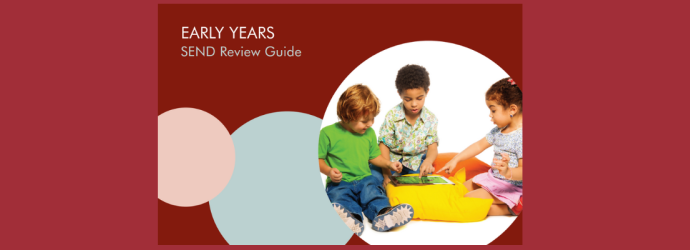
Turn Taking Tuesdays webcast for Parents
- Webcasts
- 25 Sep 2020
This webcast will consider ‘Turn taking Tuesdays’, the sorts of activities you might do and why they are important.
Turn taking is one of the most important aspects of every young child’s development. Children get pleasure and enjoyment from seeing the face of a smiling parent, or feeling a gentle touch and this gives them a sense of safety, belonging and warmth. This is very significant in terms of early development as this triggers the release of feel good hormones . It gives the young child the motivation to seek out these pleasurable experiences again and again!
The desire to be part of a serve and return interaction is like a game of tennis. The stages of development which involve mirroring, copying, and imitating are important foundations for many later skills.
Suitable for: A parent/carer, Early Years Practitioner
You may also be interested in

Early Years SEND Review Guide
- General
- 24 Oct 2025
The Early Years SEND Review Guide was developed for Early Years practitioners and reviewers, to support the review and development of inclusive provision and practice.

Time Together with your Toddler
- General
- 09 May 2024
This booklet has been produced by nasen for parents, carers and families of all children in the Early Years but particularly those with SEND. It gives ideas for places to look for activities to do with young children from trusted and well-known sources.

SEND Code of Practice & EYFS Framework – what they say
- General
- 12 Apr 2024
This resource is a quick reference guide which highlights the key messages for SEND in the context of early years. It can be printed out and displayed, used as the focus of a staff meeting or kept in the front of a practitioner’s planning folder.








